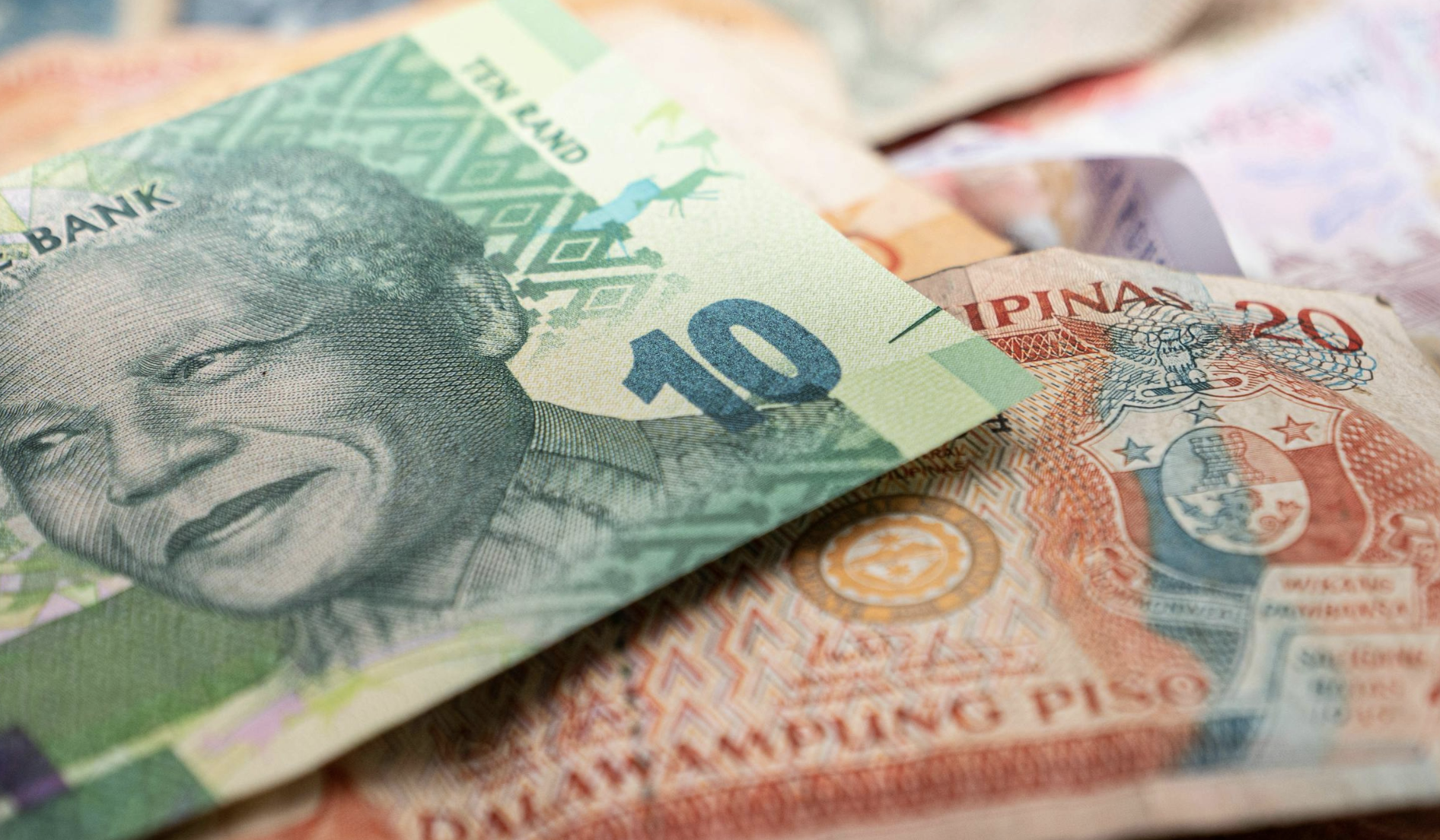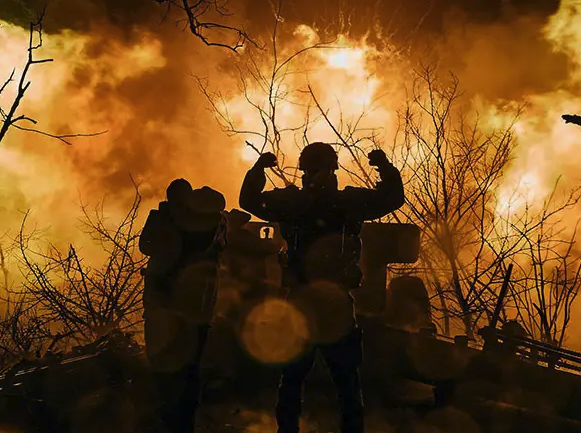News
Hot Air and Rhetoric won’t Cure South Africa’s Chronic Economic Malaise
There is a danger that the GNU is missing the opportunity to grasp the nettle and push on with the economic reforms that the country desperately needs to ignite growth and investment.

Former Director, The Brenthurst Foundation

Former Research Director, The Brenthurst Foundation

This week saw a slew of announcements on South Africa’s economy which suggest we are far from out of the woods despite the buoyant mood (at least in the coffee shops) following the formation of a Government of National Unity (GNU) earlier this year.
The most important of these was the announcement by Stats SA that gross domestic product (GDP) “weakened by 0.3% in the third quarter” with agriculture, transport, trade and government services applying the brakes.
While the effect of drought on the agriculture number was real, this GDP number serves as more evidence of South Africa’s failure to grasp the growth nettle to halt continued economic decline.
The day before the GDP number was released, President Cyril Ramaphosa announced that he had appointed a 19-person panel of economic advisers to boost the economy as the country takes the G20 presidency.
A closer look at the panel shows that it consists, in the main, of the same economic advisers that he has been consulting over his presidency. There can be no doubting the credentials of most of those on the panel – they are smart and, in one or two cases, supersmart.
But if they have had great ideas to boost economic growth over the last six years, then these must have been ignored by the government. How else do you explain the continued and deepening economic malaise?
The proof of the pudding is always in the eating, not in the theatre of the presentation.
There is also the question of why no smart or supersmart people with proven business skills in the real world have been added to the panel.
Under Presidents Nelson Mandela and Thabo Mbeki, there was concern about jobless growth. Under Jacob Zuma and Ramaphosa, we dream of those days as we face joblessness and little or no growth at all.
There is a danger that the GNU is missing the opportunity to grasp the nettle and push on with the economic reforms that the country desperately needs to ignite growth and investment.
And it’s not just reforms; it’s about the business and investment climate which is deteriorating as mafia-style extortion spreads and the government appears unable to get a grip on corruption.
While the new Police Minister Senzo Mchunu is showing up his predecessors by actually attempting to tackle major crimes, he cannot do this if these mafia in construction, transport and illegal mining continue to enjoy political protection.
There are pitifully few signs that corruption is a priority. As if to illustrate this, Ramaphosa moved the Justice Minister, Thembi Simelane, to another portfolio this past week, apparently to avoid the accusation that she might interfere should she be prosecuted over allegations she took money from a VBS fixer while Mayor of Polokwane.
Described by the normally sanguine political analyst Prof Mcebisi Ndletyana as a “cowardly act”, Ramaphosa’s shuffle has added to the impression that Ramaphosa is serious about corruption only when it is committed by his political competitors. The step-aside rule was good enough for Ace Magashule and Zweli Mkhize, but not for a trusted member of his faction.
This happened as it was reported that Deputy President Paul Mashatile’s wife Humile was the lucky recipient of a valuable gemstone (now being hastily returned to sender) from Louis Liebenberg, an associate of former South African president Jacob Zuma who described him as “the definition of loyalty”. Google would have told Mashatile that Liebenberg had been arrested recently and accused of a R4-billion scam.
What then must be done?
The simple answer is to double-down on delivery, not debate.
The most urgent task remains to get South Africa’s electricity and logistics sorted. Eskom has made strides in stabilising its coal fleet performance. However, low demand due to a weak economy and the addition of private and business solar to the mix does not get us away from the fact that the country’s energy future is far from secure.
Indeed, were the 19 panellists to finally get some good ideas on growth through the government treacle, igniting economic growth might not be possible due to the lack of energy reserves to handle rising demand.
Sorting out Eskom means putting a competitive, efficient energy market in place where power is generated and sold in an effective market. This, in turn, entails fixing local government so that its revenues are not dependent on adding a wad of fat to the electricity charge to customers to pay for what has been abysmal service delivery in all but a handful of cases.
This sorting out of local government is being tackled with vigour by the new Minister of Cooperative Governance and Traditional Affairs. But he will not succeed unless political parties start listening to voters, and sort out the incompetence and corruption that has plagued local government. They had better do so soon or they will face an almighty reckoning in the 2026 local government elections.

The logistics disaster affecting trains and harbours has also been allowed to stagger on for far too long with an effort to concession part of the Durban port to a private handler falling foul of the courts after incorrect procedures were used to account for the value of a bidder.
How Transnet will manage this process is concerning. In yet another announcement this week, S&P Global placed the corporation on “CreditWatch”.
“The CreditWatch placement reflects the increased likelihood of a downgrade if the anticipated turnaround in Transnet’s business performance and cash flow generation does not materialise soon enough to control the current leverage levels and capital structure,” it said.
The government cannot rely only on those who think about the future, especially with an externalist gaze which the G20 dimension to their task suggests. There needs to be a lot more focus and action on current problem-solving and implementation. “Cracker” big ideas are not the same as making the trains run smoothly and the ports move things efficiently, keeping the lights sustainably on, or reducing the costs of starting and running a small business.
Without action in these areas, and creating the growth that South Africans demand, presidential advisory groups cannot, on their current record, be anything more than putting lipstick on the pig of economic decline.
Such problems are not going to be fixed by more navel-gazing or flinging more solutions at the stony and impervious façade of the Union Buildings. At some point someone – dare one suggest the President? – needs to step up and implement some tough decisions.
This is the right thing to do. But if that is not sufficient motivation, it is the necessary thing to do to survive politically in South Africa.
The lesson from this year’s election is real: fail, or try to fool the people, and they will punish you.
This article originally appeared on the Daily Maverick

